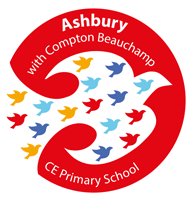History
What do we want children to learn?
At Ashbury CE Primary School, in order for children to understand how history shapes their future in our ever-changing world, we will equip children with the necessary skills and knowledge needed to make connections between the past and present. We will develop children as historians, through high-quality history lessons, enabling children to: develop critical thinking skills; persevere through historical enquiry; understand how to research and gather information; assess the reliability, perspective and authenticity of a source; and understand chronology and patterns through history. We strive to inspire children to explore different periods of time as well as cultures, in order for children to gain a sense of their own identity, and become responsible and compassionate citizens, within a world of differing social, political, cultural and economic backgrounds.
How do we teach History?
To achieve our aims, lessons are planned to ensure children are challenged and motivated, enhancing their love of learning. Children are provided with the best resources possible, enabling staff to make lessons practical, engaging and active. We provide constant support for our children and, through this engagement, all children are able to achieve and reach their goals with confidence. Teachers model and instruct on the key skills and share key knowledge for each lesson, then allowing children time to practise, investigate and develop independently, while offering support where needed.
Teachers foster a love of learning in history and reinforce an expectation that all children are capable of achieving high standards in history. At Ashbury CE Primary School, History is taught once a week for three terms of the school year. We follow the National Curriculum. Units of work have been carefully mapped across a two-year rolling programme. Each history topic is overarched by an enquiry question. We also plan for the effective use of educational visits and visitors, to enrich and enhance pupils' learning experience and the history curriculum. To support children in their ability to know more and remember more, children are encouraged and prompted to use knowledge and skills learnt from previous history topics and lessons.
On leaving Ashbury with Compton Beauchamp CofE Primary School, children will:
Progress will be shown through children knowing more and remembering more. Children are continually assessed throughout the year to ensure they are on track to reach the Age Expected Standard or better by the end of the academic year. These assessments include recalling knowledge as a starter and low-stakes testing such as quizzes. We regularly monitor children's needs to ensure the necessary support for pupils is put in place. Teachers will assess children in history and track attainment and progress using FFT Aspire. Teachers will monitor how children are progressing throughout history units and ensure children are developing relevant skills and knowledge to reach the key milestones at the end of EYFS, KS1 and KS2.
History Curriculum Overview
|
History Curriculum Overview Cycle A |
(EYFS) |
(Year 1 and 2) |
(Years 3 and 4) |
(Years 5 and 6) |
|
Term 1 |
Families Old Phones/technology |
Rosa Parks and Nelson Mandela |
|
|
|
Term 2 |
The Nativity Story |
Gun Powder Plot |
Romans |
Vikings and Anglo-Saxons |
|
Term 3 |
Stories and Characters from the past |
|
|
|
|
Term 4 |
Dinosaurs |
|
Anglo-Saxons-Scots |
Mayans |
|
Term 5 – |
People and communities |
The Great Fire of London |
|
|
|
Term 6 |
Clothes |
|
Victorians |
Mediaeval Britain |
|
History Curriculum Overview Cycle B |
(EYFS) |
(Year 1 and 2) |
(Years 3 and 4) |
(Years 5 and 6) |
|
Term 1 |
Remembrance/Bonfire |
|
|
Egyptians |
|
Term 2 |
Celebrations |
Local Historical Landmarks |
Stone and Iron Age |
|
|
Term 3 |
People and Communities |
|
|
World War 2 |
|
Term 4 |
Growth and Change |
Great Explorers |
Greeks |
|
|
Term 5 |
People and Communities |
Changes to transportation |
|
World War 2 (local) |
|
Term 6 |
Stories and characters from the past |
|
Crime and Punishment |
|
